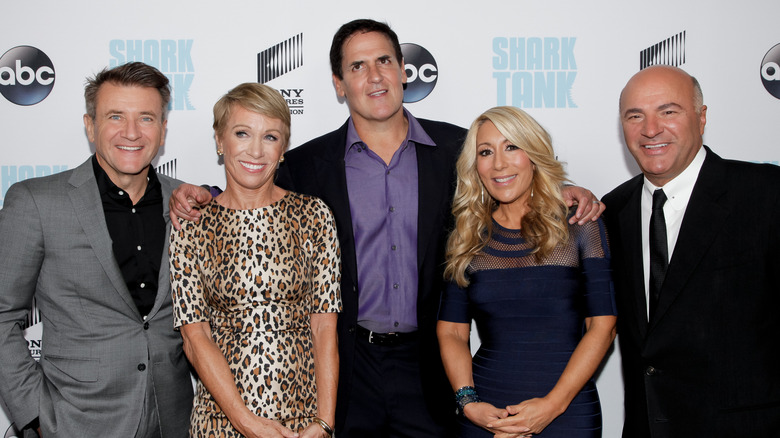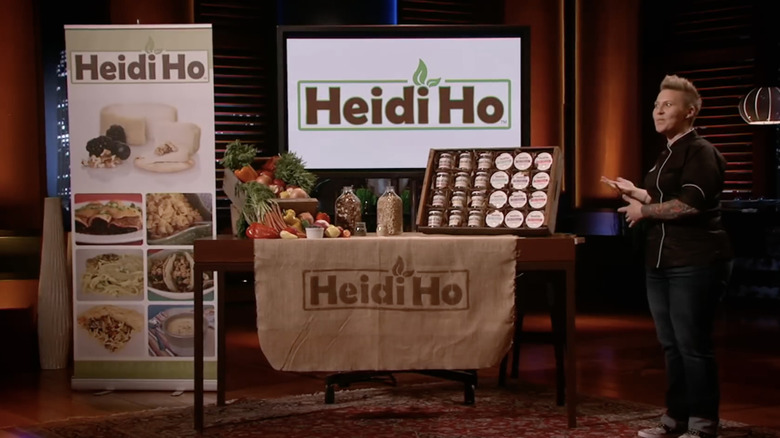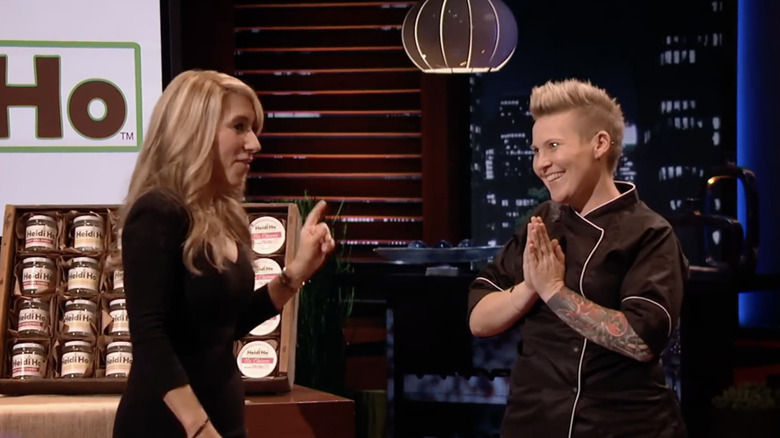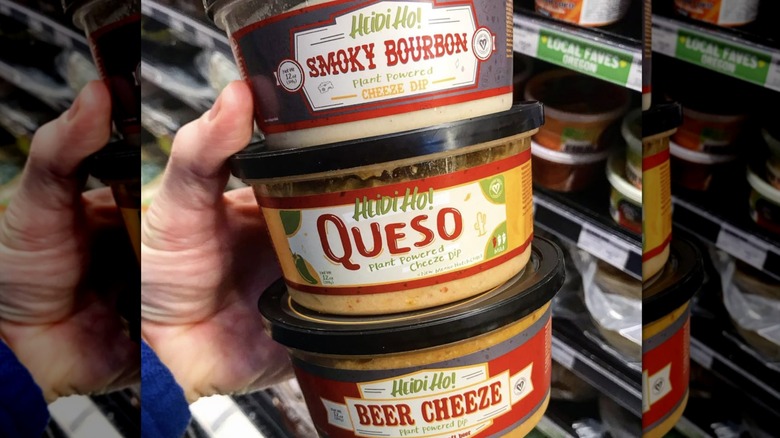Whatever Happened To Heidi Ho From Shark Tank?
Cheese is a staple food in many diets. Hence, it doesn't come as a surprise that the average American eats around 42 pounds of this dairy product per year. The thing is, many types of cheese aren't healthy due to their high saturated fat, sodium, and calorie content. Plus, most cheese is sourced from animals, and concerns have been raised about the treatment of these animals within the commercial farming industry. In an effort to improve these weak points, Chef Heidi Lovig developed non-dairy cheese and sold it under her brand, Heidi Ho. Unlike traditional cheese, Heidi Ho cheese is made from nuts, seeds, and veggies. It also offers a better texture and flavor than most vegan cheeses, which, by the way, do not melt like dairy-based cheese. Lovig had big ambitions for Heidi Ho, so she took her brand to "Shark Tank" in 2014.
Heidi Ho was founded in 2010, but it didn't become that big of a deal despite offering a healthier cheese alternative. Lovig managed to start selling her product line at Whole Foods, but to get more funding and boost production, she decided to pitch Heidi Ho on "Shark Tank." On Season 6, Episode 10, Lovig entered the tank with a very confident and straightforward presentation, which immediately caught the attention of the Sharks. Her samples further piqued their interest, but were these enough for her to land a deal?
What happened to Heidi Ho on Shark Tank?
Chef Heidi Lovig entered "Shark Tank" seeking $125,000 for a 20% stake in her company, Heidi Ho. Over the 12 months before filming the episode, her brand generated $140,000 in sales, while lifetime sales totaled $245,000. She felt her company was about to hit the big time, so she needed an expert to guide her through the next steps, as well as the funding to make it happen. After handing out samples and explaining how she was selling her products via Whole Foods, Lovig shared why she created dairy-free cheese. According to Lovig, she learned to cook healthy after gaining weight from following a typical American diet growing up. In the process, she found a way to make healthy, plant-based cheese alternatives.
The negotiations started after the Sharks heard her story. However, Kevin O'Leary was reluctant to invest since he was a member of a wine club, and traditional cheese goes well with wine. On the other hand, Lori Greiner was all in after finishing and enjoying the samples. She offered Lovig's asking price but wanted a 30% stake. While still stunned by Greiner's proposition, Lovig wanted to hear what the other Sharks had to offer. However, Mark Cuban, Barbara Corcoran, and Robert Herjavec all made a hard pass. In the end, Lovig accepted the only deal she got from Greiner, who was also the sole Shark to take a chance on the Handy Pan in one of the later seasons.
Heidi Ho after Shark Tank
Many brands become big after appearing on "Shark Tank." Aside from the overwhelming "Shark Tank" effect, where a company experiences a strong surge in sales once its episode airs, a number of companies strike deals with big distributors and stores. This explains why there are brands from "Shark Tank" that are found at Walmart. Heidi Ho experienced the same boost. With Greiner's help, sales jumped to $750,000 just four months after the episode aired. In an update segment, the new business partners revealed that the dairy-free cheeses were already available in over 500 Whole Foods stores. Heidi Ho products were also sold at Costco locations in the Pacific Northwest. The brand even secured additional funding from Blue Horizon, a Switzerland-based company known for investing in the plant-based market.
In an interview with The Oregonian, Lovig disclosed that Greiner was very hands-on with their venture. "She's so smart, so savvy. She really has taught me a lot. She put a thick skin on me because the industry in general can be pretty greedy," she said. Their deal and partnership proved beneficial to the brand, as Heidi Ho quickly moved from a 900-square-foot working space to a 6,000-square-foot Portland warehouse in response to the skyrocketing demand. At that point, Heidi Ho seemed like it was heading to be one of the biggest success stories from "Shark Tank."
Is Heidi Ho still in business?
Surprisingly, Heidi Ho is already out of business. It's not clear what led to the company's demise, given that it raised a whopping $803,000 in funding over time. Its website is no longer active, and its social media presence has stopped in its tracks. Heidi Ho's Instagram and Facebook accounts have not been updated since 2020. The last post shared by Chef Heidi Lovig on both platforms celebrated her company's 10th anniversary. Though she did not drop hints about where the brand was headed, she admitted that the COVID-19 pandemic had been "a very challenging low for Heidi Ho." According to Pitchbook, Heidi Ho officially went out of business on Nov. 20, 2022.
Based on her LinkedIn profile, it seems Lovig has already left the food industry. In March 2021, she started a new venture as the owner and operator of a short-term rental company called Red Rug Realty, LLC. Under her new business, Lovig oversees short-term rental properties and conducts real estate rental arbitrage for landlords. Heidi Ho did not turn out to be one of the biggest food flops in "Shark Tank" history, considering that it secured a deal and even found success for a time. However, it eventually suffered an unfortunate fate.



